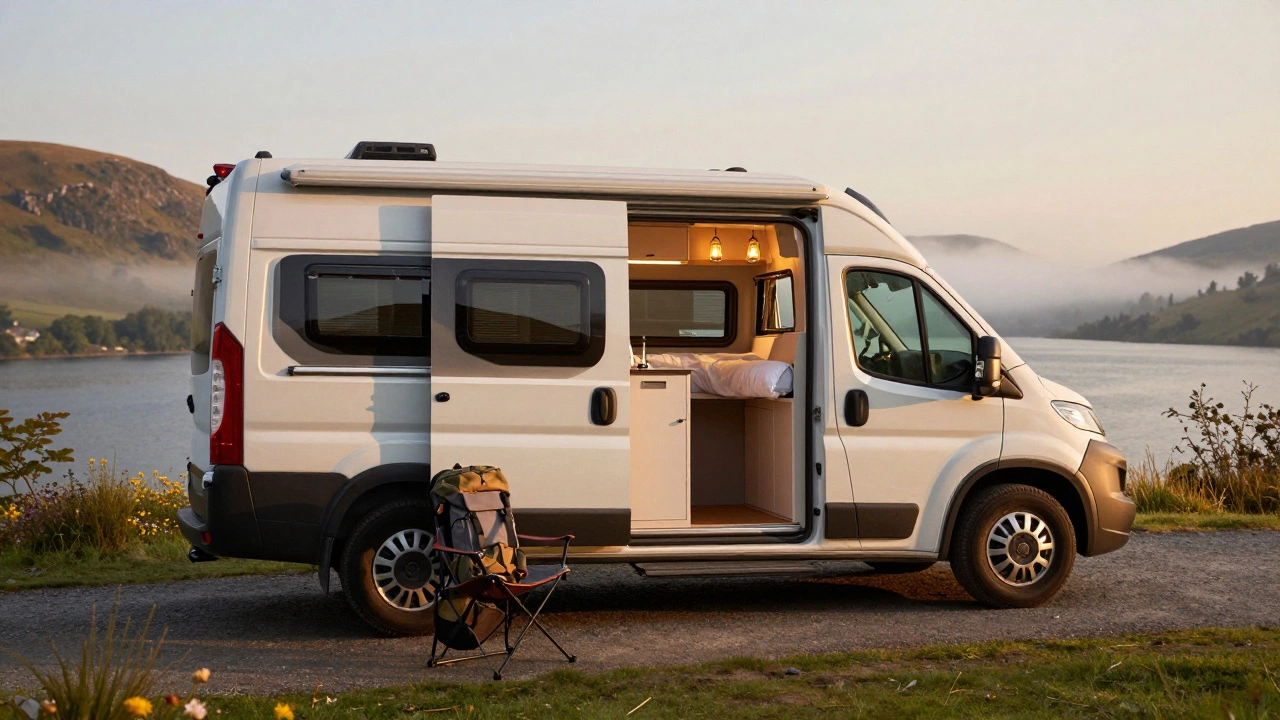Camper Van Guide – What Every UK Vanlifer Needs to Know
If you’ve ever dreamed of waking up by a lake, cooking breakfast in a tiny kitchen, and driving wherever the road leads, a camper van might be your ticket. In the UK, the freedom of vanlife comes with a handful of rules and practical choices that can make or break your trip. Let’s cut the fluff and get straight to the must‑know stuff.
Legal basics you can’t ignore
First up, the law. You can drive a camper van on any UK road as long as it’s within the same category as your licence – most standard B licences cover vans up to 3.5 tonnes. That means no extra test for a typical VW camper or similar size vehicle. Remember to buckle up – the driver’s seat always needs a seatbelt, and every passenger must be strapped in. Walking around while the van is moving? That’s a fine‑getting habit you’ll want to avoid. The DVSA treats it like any other moving vehicle: if you’re not seated, you could face penalties.
What about using the toilet on the road? In the UK it’s legal to use the onboard toilet while stopped, but you must not discharge waste onto public land. Most modern vans have a black water tank; empty it at a proper dump point – many service stations and motorhome parks provide this. Forgetting to do so can lead to hefty fines and environmental damage.
Power, comfort, and saving money
A portable power station is a game‑changer for vanlife. Choose a model that offers at least 500 Wh capacity if you plan to run lights, a phone charger, and a small fridge. Add a solar panel – a 100‑W foldable panel can replenish the battery in a sunny afternoon, cutting the need for campsite electricity.
When it comes to campsite fees, don’t always go for the cheapest spot. Look for places that include hookups for water, electricity, and waste. This saves you time and extra fuel costs driving between sites. If you’re on a tight budget, consider boondocking in designated free areas, but double‑check local bylaws – some councils ban overnight stays on public land.
Packing smart can shave pounds off your load and keep your van balanced. Pack clothing in compression bags, store heavy items low and centered, and keep essential tools – a basic spanner set, spare fuses, and a tire repair kit – within arm’s reach. A quick checklist before you head out (battery charge, tyre pressure, water levels, paperwork) prevents nasty surprises on the road.
Lastly, think about insurance. A standard motor insurance policy often doesn’t cover a vehicle used as a mobile home. Look for specialist camper van cover that includes contents, roadside assistance, and legal protection. It may cost a bit more, but peace of mind is priceless when you’re miles from home.
With these basics covered – legal must‑knows, power solutions, and budget‑friendly habits – you’re ready to hit the road with confidence. The UK’s countryside, coastline, and historic towns are waiting; all you need is the right mindset and a well‑prepped van. Happy travels!

